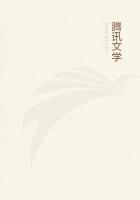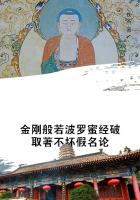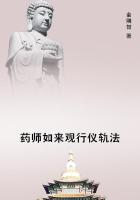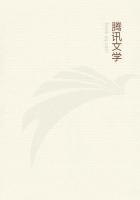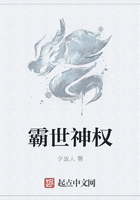Every age and every nation has certain characteristic vices, which prevail almost universally, which scarcely any person scruples to avow, and which even rigid moralists but faintly censure. Succeeding generations change the fashion of their morals, with the fashion of their hats and their coaches; take some other kind of wickedness under their patronage, and wonder at the depravity of their ancestors. Nor is this all. Posterity, that high court of appeal which is never tired of eulogizing its own justice and discernment, acts on such occasions like a Roman dictator after a general mutiny. Finding the delinquents too numerous to be all punished, it selects some of them at hazard, to bear the whole penalty of an offence in which they are not more deeply implicated than those who escape. Whether decimation be a convenient mode of military execution, we know not; but we solemnly protest against the introduction of such a principle into the philosophy of history.
In the present instance, the lot has fallen on Machiavelli, a man whose public conduct was upright and honorable, whose views of morality, where they differed from those of the persons around him, seemed to have differed for the better, and whose only fault was, that, having adopted some of the maxims then generally received, he arranged them more luminously, and expressed them more forcibly, than any other writer.
Having now, we hope, in some degree cleared the personal character of Machiavelli, we come to the consideration of his works. As a poet, he is not entitled to a very high place;4 but the comedies deserve more attention.
[Footnote 4: In the original essay Macaulay had here some critical remarks on the poetry of Machiavelli, but he omitted them on republication.]
The "Mandragola," in particular, is superior to the best of Goldoni, and inferior only to the best of Moliere. It is the work of a man who, if he had devoted himself to the drama, would probably have attained the highest eminence, and produced a permanent and salutary effect on the national taste.
This we infer, not so much from the degree as from the kind of its excellence.
There are compositions which indicate still greater talent, and which are perused with still greater delight, from which we should have drawn very different conclusions. Books quite worthless are quite harmless. The sure sign of the general decline of an art is the frequent occurrence, not of deformity, but of misplaced beauty. In general, tragedy is corrupted by eloquence, and comedy by wit.
The real object of the drama is the exhibition of human character. This, we conceive, is no arbitrary canon, originating in local and temporary associations, like those canons which regulate the number of acts in a play, or of syllables in a line. To this fundamental law every other regulation is subordinate. The situations which most signally develop character form the best plot. The mother tongue of the passions is the best style.
This principle, rightly understood, does not debar the poet from any grace of composition. There is no style in which some man may not, under some circumstances, express himself. There is, therefore, no style which the drama rejects, none which it does not occasionally require. It is in the discernment of place, of time, and of person, that the inferior artists fail. The fantastic rhapsody of Mercutio, the elaborate declamation of Antony, are, where Shakespeare has placed them, natural and pleasing. But Dryden would have made Mercutio challenge Tybalt in hyperboles as fanciful as those in which he describes the chariot of Mab. Corneille would have represented Antony as scolding and coaxing Cleopatra with all the measured rhetoric of a funeral oration.
No writers have injured the comedy of England so deeply as Congreve and Sheridan. Both were men of splendid wit and polished taste. Unhappily, they made all their characters in their own likeness. Their works bear the same relation to the legitimate drama which a transparency bears to a painting.
There are no delicate touches, no hues imperceptibly fading into each other: the whole is lighted up with a universal glare. Outlines and tints are forgotten in the common blaze which illuminates all. The flowers and fruits of the intellect abound; but it is the abundance of a jungle, not of a garden, unwholesome, bewildering, unprofitable from its very plenty, rank from its very fragrance.
Every fop, every boor, every valet, is a man of wit. The very butts and dupes, Tattle, Witwould, Puff, Acres, outshine the whole Hotel of Rambouillet.
To prove the whole system of this school erroneous, it is only necessary to apply the test which dissolved the enchanted Florimel, to place the true by the false Thalia, to contrast the most celebrated characters which have been drawn by the writers of whom we speak with the Bastard in "King John," or the Nurse in "Romeo and Juliet." It was not surely from want of wit that Shakespeare adopted so different a manner. Benedick and Beatrice throw Mirabel and Millamant5 into the shade. All the good sayings of the facetious hours of Absolute and Surface might have been clipped from the single character of Falstaff without being missed. It would have been easy for that fertile mind to have given Bardolph and Shallow as much wit as Prince Hal, and to have made Dogberry and Verges retort on each other in sparkling epigrams.
But he knew that such indiscriminate prodigality was, to use his own admirable language, "from the purpose of playing, whose end, both at the first and now, was, and is, to hold, as it were, the mirror up to nature."
[Footnote 5: In Congreve's "Way of the World."]

